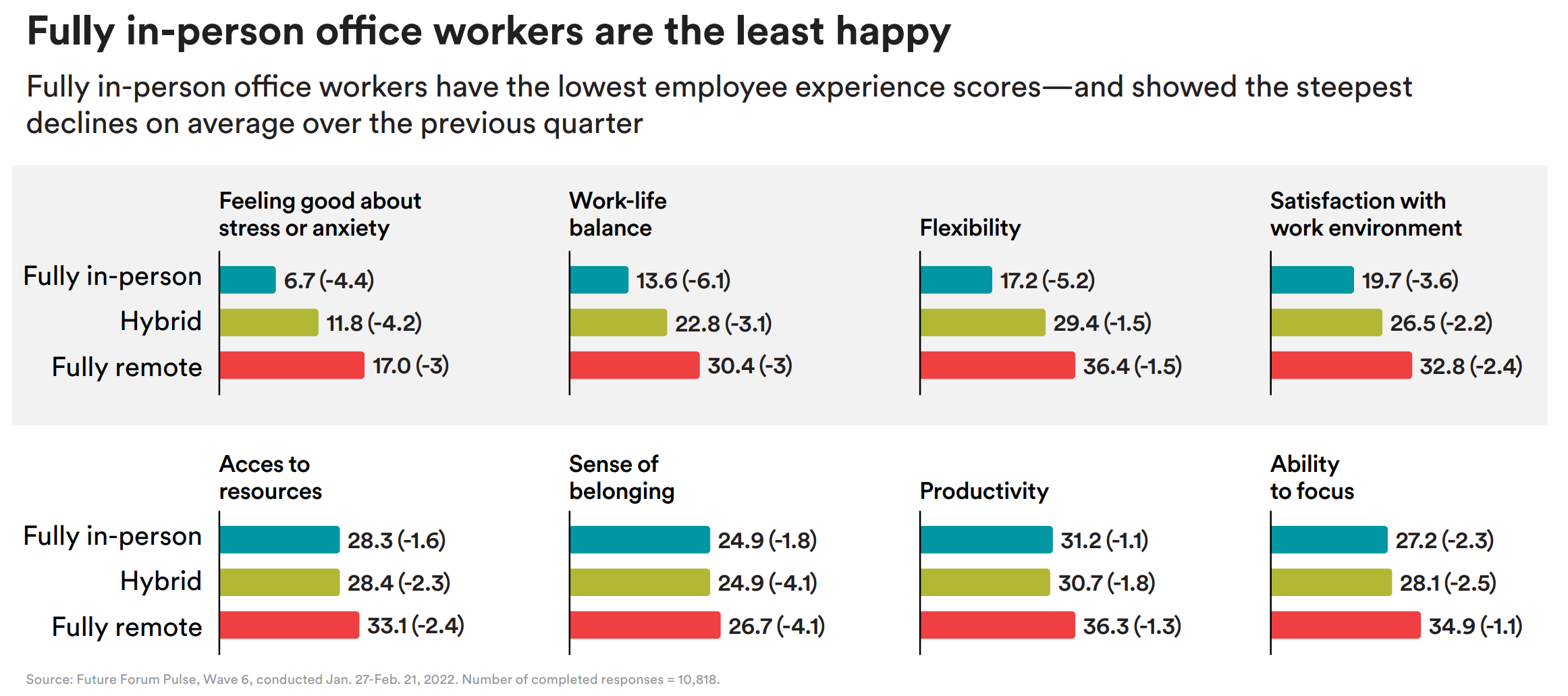Why it matters: Are you one of the many workers who have returned to the office following a lengthy stint working from home during the pandemic? Are you happy about going back? Probably not. A new survey shows that despite what many bosses want you to believe, people prefer working remotely.

Software giant Slack commissioned the Future Forum Pulse survey, which covered 10,000 knowledge workers (those who spend most of their time on a computer) in the US, Australia, France, Germany, Japan, and the UK.
The survey results show that around 34% of participants have now returned to the office five days per week, and that's led to employee sentiment dropping to near-record lows. There has been a 2x as steep a decline in work-life balance compared to hybrid and remote workers, 1.6x as steep a decline in overall satisfaction with their working environment, and 1.5x worsening work-related stress and anxiety.
"In the US, work-life balance is at an all-time low and work-related stress and anxiety are at an all-time high since the inception of our survey, an abrupt about-face from the previous quarter," the report said.
While many executives like to extoll the virtues of office work, it seems this is a case of 'do as I say, not as I do.' Non-execs are twice as likely to be working in offices than their superiors, meaning their work-life balance scores are 40% worse, and they are twice as likely to suffer anxiety and stress.
"This discrepancy suggests that while many executives continue to work flexibly, for their employees the flexible work options that provided much-needed balance and relief have been clawed back," the research states.
Worker unhappiness could have an impact on their employers beyond reduced productivity. With 55% saying they would prefer flexible working hours at least part of the time, one in five say they are likely to look for a new job if their company doesn't allow some flexibility. Additionally, knowledge workers who say their employer is not being "transparent about their future-of-work plans" are more than three times as likely to quit this year.
In September, a Microsoft study claimed that working from home threatens productivity and innovation. There was also a survey in January showing many people were so desperate to keep working remotely that they were willing to lose large parts of their salaries and even benefits such as health insurance and paid time off.
Masthead credit: Christina Morillo
https://www.techspot.com/news/94285-most-workers-dont-want-back-office-could-quit.html







/cloudfront-us-east-2.images.arcpublishing.com/reuters/ICQ2WKXFVFIYFHPGERSQOPZCCA.jpg)